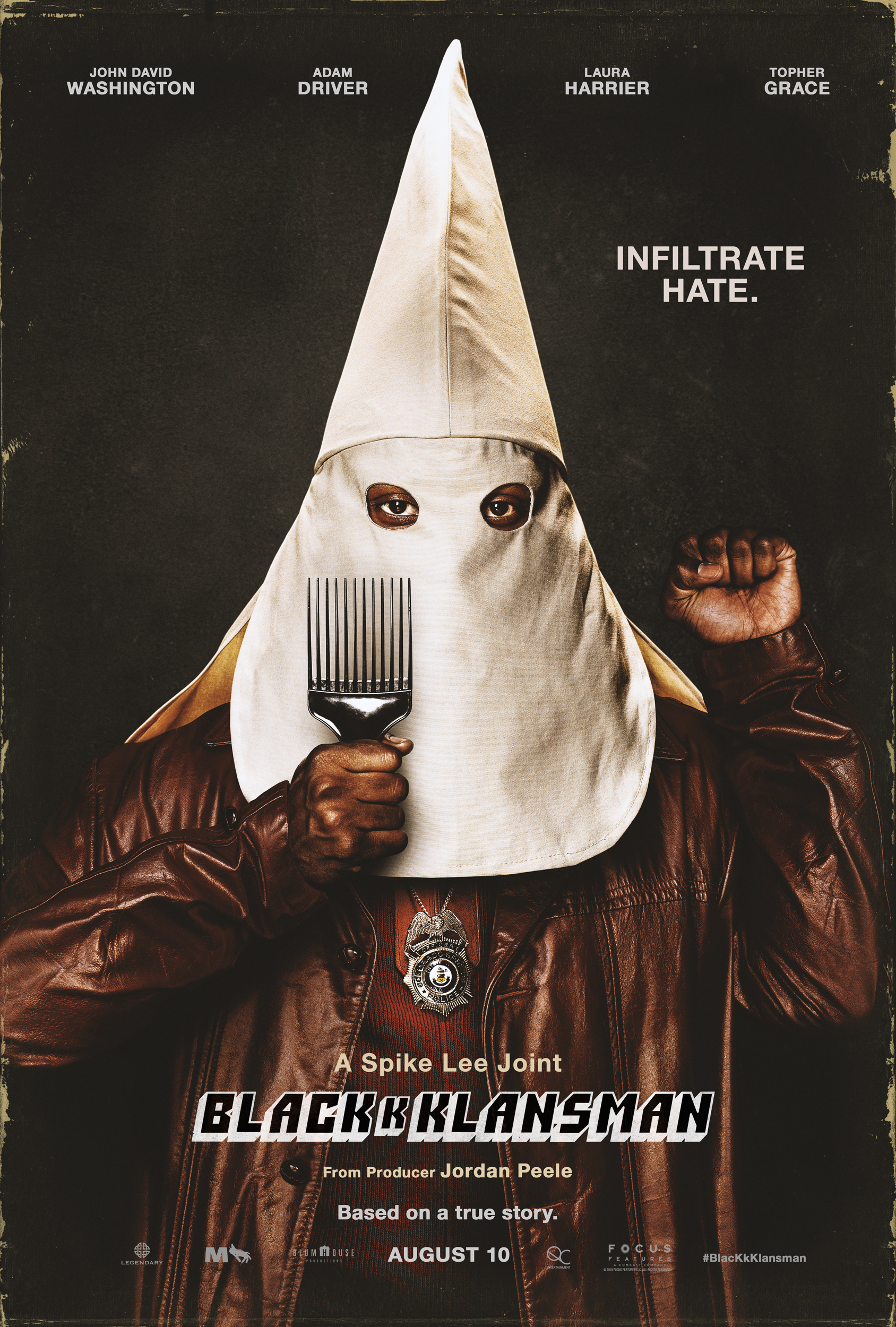The Relevance of "BlacKkKlansman"
Gallery

Spike Lee’s new cop drama, “BlacKkKlansman” is a thrilling, insane and incredibly relevant story of two police officers joining forces to infiltrate the KKK by assuming the shared identity of “Ron Stallworth.”
The movie follows the (somewhat) true story of young rookie Ron Stallworth, the first African American police officer in the Colorado Springs Police Department. Stallworth is at first given a position in the records room, where he repeatedly is discriminated against by many of his fellow officers. After taking enough of the harassment, Stallworth requests a transfer to the intelligence division, where he meets officer Flip Zimmerman, who also happens to be Jewish.
After seeing an ad in the paper, Ron Stallworth contacts local KKK chapter leader, Walter Breachway, eventually working his way up to establishing a relationship with the grand wizard of the KKK, David Duke. After agreeing to an in-person meet up with the local chapter president, Stallworth and Zimmerman join forces to assume the joint identity of “Klansman Ron Stallworth,” and infiltrate the KKK to prevent a local terrorist attack.
Despite its dramatic conclusion, the movie’s pacing is somewhat lackluster. The start of the movie to the beginning of the undercover operation feels unbearably long, with scenes that stretch out well passed the dramatic point being made. While the purpose of the first act is to display the internal racism of the department, at least half of it acts more like filler than exposition.
Once Stallworth and Zimmerman begin their investigation, the movie explodes into a tense yet comedic ride that more than makes up for its beginning. Throughout the film Stallworth is portrayed as being trapped between worlds, and grapples with where he belongs in society, as some of his fellow officers look down upon him for his race, and members of the African American community shun him due to his occupation. Following the Civil Rights era police violence towards the African American community was rampant. The frequent police harassment led to many African American communities, especially in urban areas, to view the police as an institution dedicated to oppressing them. While Stallworth joined the police force as a way to try and bridge the divide, many saw him as a black sheep, not having an interest in helping the Black community.
The movie explores our nation’s history with race, putting on display how far we have come, and how far we still need to go. While the movie does take place in the 1970s, it intentionally invokes clear images of today. The movie takes many well-placed jabs at Donald Trump, saying in a conversation between Stallworth and his superior, “The American people would never vote for someone as racist as David Duke.” The line is followed by an almost 4th wall breaking pause, before continuing on. At many points throughout the film, Klan members use slogans like “America first,” and “Make America great again,” as symbols of their cause. While these slogans were, and still are, used by President Trump, as the movie accurately portrays, they were originally used by neo-Nazis and white supremacists, most notably David Duke.
The movie closes out on a very serious note, showing clips of 2017’s “Unite the Right” rally in Charlottesville, Virginia. Showing neo-Nazis and white supremacists marching with confederate flags and Nazi swastikas, chanting racially charged statements. The clips end with footage from multiple angles of the car driven by a neo-Nazi that plowed into crowds of demonstrators protesting the white supremacist rally, resulting in the death of Heather Heyer, a white female counter-protester. The movie makes it clear, that the fight for racial equality is not over.
